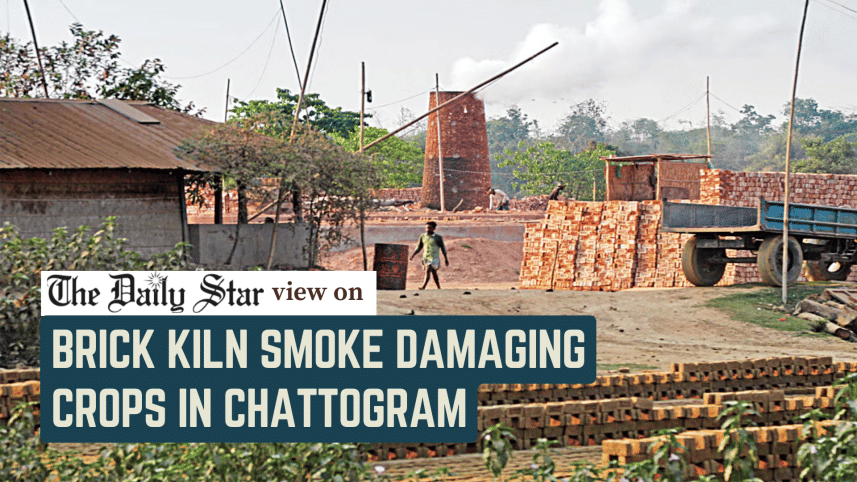Take steps against brick kilns set up on farmlands

It is alarming to learn of farmers in Chattogram's Fatikchhari and Hathazari upazilas who are facing losses due to crop damage caused by toxic smoke from nearby brick kilns. Reportedly, crops are being covered in dust from the smoke, and as a result, many farmers are failing to even recover their production costs. For some, crop yields have declined by more than half since the kilns began operating near their croplands. Some are reportedly even considering abandoning their profession.
Crops grown near brick kilns do not develop as expected and must be washed before being sold. Toxic fumes from the kilns also raise significant food safety concerns. Currently, according to data from the Department of Environment (DoE), over 90 brick kilns are operating across the two upazilas. Under the Brick Production and Kiln Installation (Regulation) Act, establishing brick kilns on or within a one-kilometre radius of agricultural land is prohibited. Many kilns in these areas, however, have been set up in direct violation of the law. Moreover, most of the kilns use firewood as fuel—another breach of existing regulations that contributes significantly to harmful emissions, exacerbating the damage to nearby croplands.
This trend—which many other regions also suffer from—remains a norm despite recent efforts by the interim government. For example, according to a previous report citing officials from the DoE and the Department of Agricultural Extension (DAE) in Rangpur, some 984 brick kilns are operating on farmlands in eight districts of the division. The persistence of this problem shows how difficult it is to address it without proper support from political parties, considering the involvement of local politicians and political muscles in the operation of brick kilns, often without permits.
While the government needs to address these broader problems associated with brick kilns, it is important to take their damaging effect on farmlands more seriously. The costs inflicted on farmers may drive them out of business entirely, affecting our food security. And the damage being done to the productivity of farmlands could take significant time and resources to reverse. As such, we urge the government to take stock of brick kilns operating close to farmlands across various regions—including Chattogram—and shut or relocate them before they cause any further harm.



 For all latest news, follow The Daily Star's Google News channel.
For all latest news, follow The Daily Star's Google News channel. 


Comments